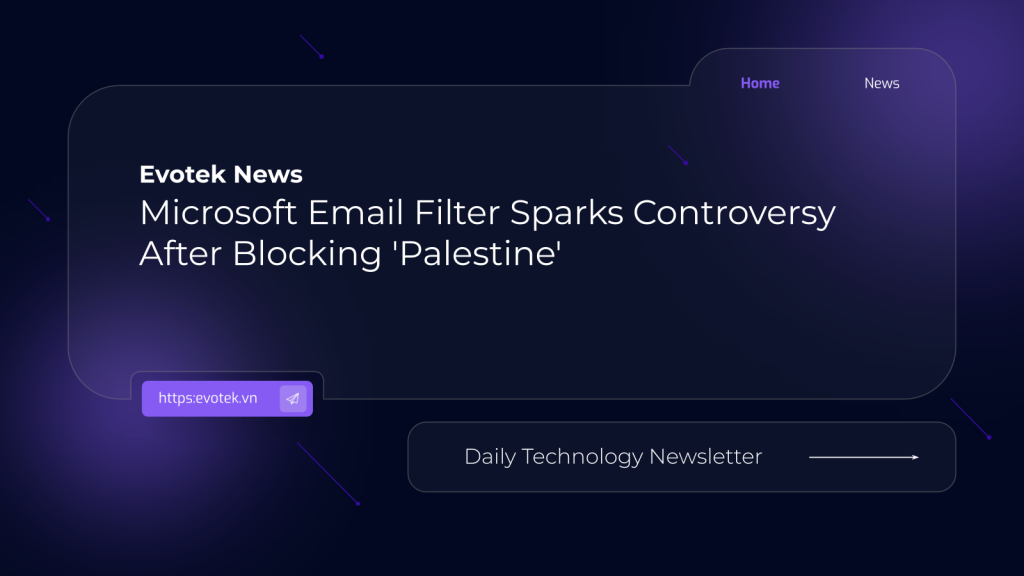Redmond, WA – Microsoft is facing internal scrutiny after reports surfaced that its email system was temporarily blocking messages containing the words “Palestine” or “Gaza.” The move, which employees discovered recently, has ignited debate over free speech and potential censorship within the tech giant.
According to the No Azure for Apartheid (NOAA) group, numerous Microsoft employees found their emails, including those with subject lines or body text mentioning “Palestine,” “Gaza,” or “Genocide,” were being blocked from internal and external recipients. NOAA organizer Hossam Nasr stated that similar terms like “Israel” or intentional misspellings of Palestine, such as “P4lestine,” did not trigger the filter. He suggested that Microsoft was attempting to suppress worker expression and discriminate against Palestinian employees and their allies.
Microsoft has acknowledged implementing changes to its email system aimed at curbing the flow of “politically focused emails.”
“Emailing large numbers of employees about any topic not related to work is not appropriate. We have an established forum for employees who have opted in to political issues,” said Microsoft spokesperson Frank Shaw in a statement. “Over the past couple of days, a number of politically focused emails have been sent to tens of thousands of employees across the company and we have taken measures to try and reduce those emails to those that have not opted in.”
This email filtering development coincides with ongoing protests by current and former Microsoft employees during the company’s Build developer conference. These protests centered around Microsoft’s contracts with the Israeli government. One Microsoft employee, Joe Lopez, disrupted the opening keynote, questioning whether Israeli war crimes were “powered by Azure.” Lopez was subsequently terminated after sending an email to thousands of colleagues.
The disruptions continued throughout the week, with a Palestinian tech worker interrupting a presentation and former employees staging a protest during a Build session. Amidst the commotion, an internal message regarding Walmart’s AI usage was inadvertently revealed.
These events follow Microsoft’s recent acknowledgment of its cloud and AI agreements with Israel. The company maintains that an internal and external review found “no evidence” that its technologies were used to “target or harm people” in Gaza. The situation highlights the increasing tension between technology companies, employee activism, and geopolitical concerns.

 日本語
日本語 한국어
한국어 Tiếng Việt
Tiếng Việt 简体中文
简体中文